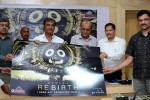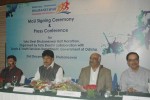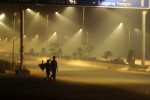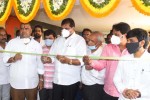Twenty-two women from Mandapathara village come together and partner with Gram Vikas to get functional household level 24×7 piped water supply, toilets, and bathing rooms, and become leaders of water quality management in their community.

Odisha Channel Bureau
Bhubaneswar: Draupadi Jani, resident of Mandapathara Village Development Committee, looks back on the struggle for water by the women of her village. She says, “We held awareness meetings in the village for putting a piped water and sanitation system in place. None of the men supported us at that time.”
When women of all 22 households agreed to own a sanitation system and piped water at any cost, Gram Vikas agreed to set up the system in the village in Odisha’s Ganjam district. Little by little these women saved money. They collected leaves from the forest and made leaf plates to sell in the village market, worked as daily wagers during road construction in Khajuripalli village at the time or as labourers at construction sites earning upto ₹90.
According to a report prepared by Gram Vikas, the women were able to save enough within one year to be able to make the initial contribution of ₹1000 for the corpus fund. The amount in the corpus fund is saved in a bank on a fixed deposit whose interest income is to be used by the Village Water Sanitation Committee (VWSC) to provide financial assistance to new families coming up in the village to build toilet and bathing rooms.
The village did not have a road, so the women cleared the way cutting down trees and bushes by themselves to make way for a tractor to carry construction material for the TBRs into the village. “We had no idea on masonry or construction. Gram Vikas staff guided us at every step while constructing the TBRs. They arranged a tractor to carry the construction materials like bricks, rods, cement from the shop to our village. The tractor was also used to ferry stones from near the river chipped and broken by us. We built our TBRs, and it took us over a year to complete with the help of a few daily wage labourers who came on the instructions of Gram Vikas staff. Our determination in building the TBRs inspired a few men from our village to work in constructing the overhead water tank.”
“In 2012, pipes were laid, and water was supplied to our homes with the help of solar power. Our village still does not get power supply, but we have come a long way in our battle for water,” said Basanti Jani, Secretary of Mandapathara Village Development Committee (VDC).
In 2020, the village had a high incidence of diarrhea, itching, and flu. Women and children faced the brunt and fell ill regularly. In December 2020, during a thorough check up, Gram Vikas’ team tested water at individual tap connections which was found to be contaminated. Later, the team and members of the village committee found that pipes were cracked at two places and valves had sprung up leaks. Water was tested from these two points and found contaminated with bacteria causing diarrhoea and itching.
In January 2021, Anjani Jani became a trained Water Quality Management cadre as part of Gram Vikas programme to ensure access to safe water free from bacteria and other particulate matter. “Unlike other villages, our village is in darkness, but we have ensured piped water supply to every household. The water supplied is safe for drinking now. I have been trained and have learned the water testing protocols. We do not have any cases of diarrhea or itching anymore. With the collective strength of the women, we have made safe water a reality for each home in our village.” Anjani Jani is one of the 22 community cadres in Ganjam district of Odisha.
To enable our communities to have access to safe drinking water without bacteria Gram Vikas started work in water quality management in 2018. The process involves identifying and training village level cadres to test the quality of water using field test kits and equipment.
The VDC members select a person from the village who has studied at least upto Class 8 and is able to operate a smartphone. Once a cadre is selected, Gram Vikas staff sensitises the cadre on safe water properties, the necessity for testing and how it impacts health.
During the demonstration, a field-testing kit (FTK) is used to test fluoride, bacteria and nitrate in the water. The FTK consists of equipment like test tubes, reagents and colour charts. Fluoride and nitrate testing is done on water collected from two or three points like water from a household tap closest to the overhead water tank and from two or three other points. Bacteria is tested from potable water collected from the household. It takes between 10 minutes in case of the nitrate test and up to 36 hours to get the bacteria test results. The cadre then uploads the result of water colour against the colour charts to the mWater app in his/her smartphone.
The results are shared with the VDC members who then call on a General Body meeting. During the meeting the results from the tests conducted are shared. In case of contamination, the residents discuss resolving the problem. Depending on the extent of repair required, residents decide the amount required to carry out the repair work. Thereafter, the VDC members mobilise the resource in the village. Currently, 185 women and men are engaged as WQM cadres in 185 villages.

















